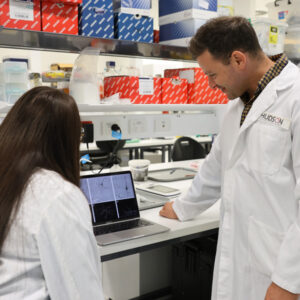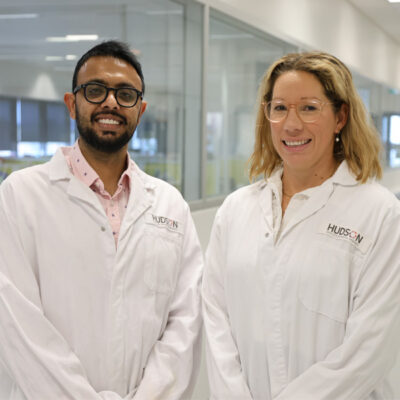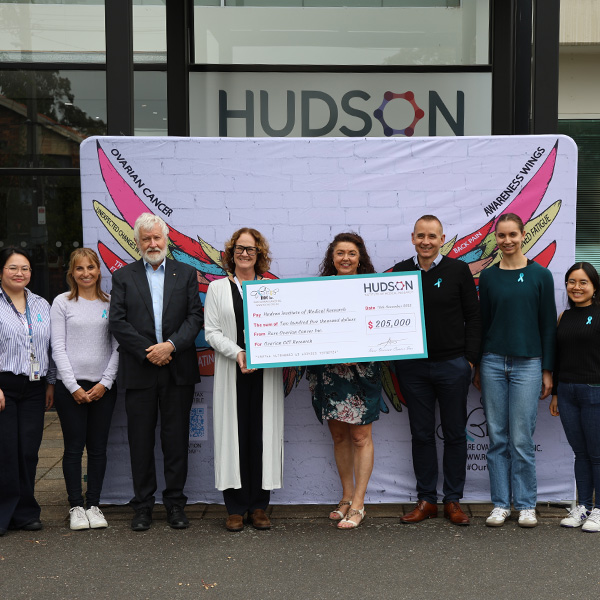Understanding the mechanics of perinatal brain inflammation
By Rob Clancy, staff writer. Reviewed by Dr Robert Galinsky
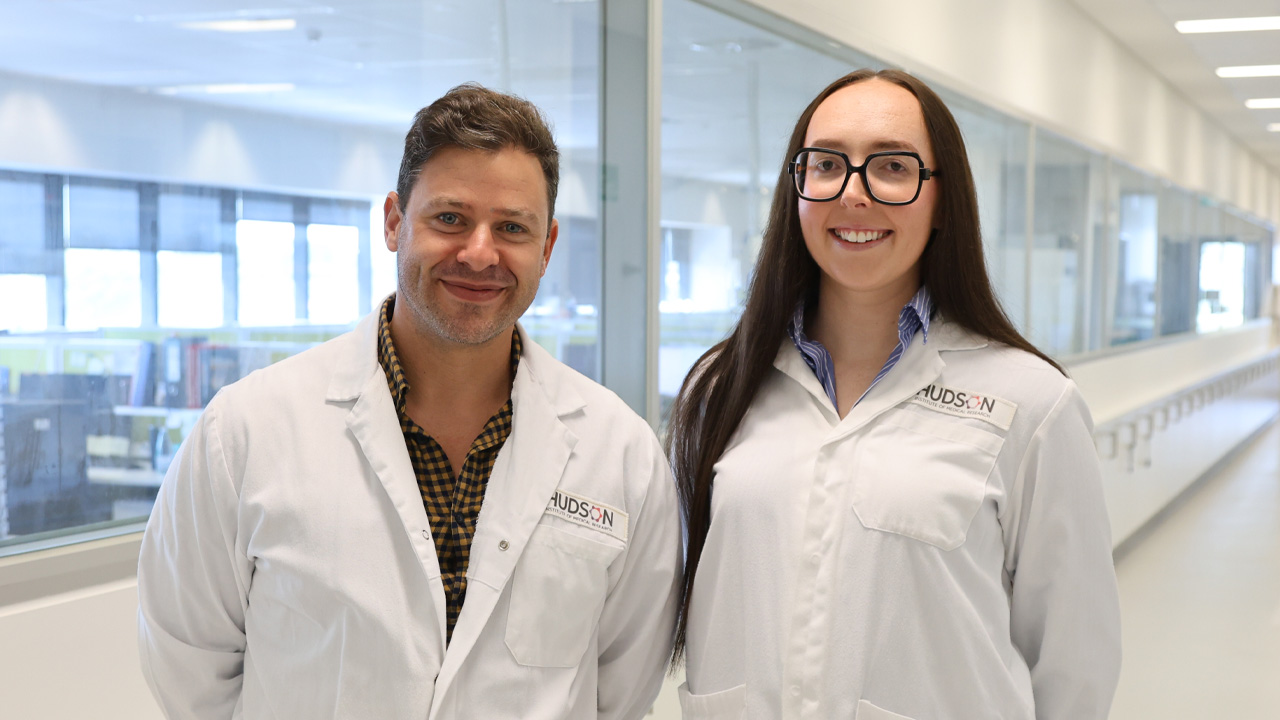
When something goes wrong before or during birth, doctors know the potential consequences are huge and often harmful; what they often don’t know is the exact nature of the damage that is caused by inflammation of the perinatal brain.
Neuroinflammation facts
Neuroinflammation can have a wide range of effects on the newborn brain, including
- Disruption of normal brain development
- Damage to brain cells and tissues
- Impaired communication between brain cells
- Alterations in brain structure and function
- Increased risk of neurological disorders, such as autism and schizophrenia.
Researchers at Hudson Institute of Medical Research have now combined insights from the latest diagnostic technologies to identify the specific processes by which inflammation causes structural changes in the newborn brain.
These changes can result in a range of conditions including cerebral palsy, neurodevelopmental delays and learning difficulties.
Dr Sharmony Kelly has built on her previous research in this area to identify how injury alters development of grey matter, leading to changes that are often not apparent until years later.
She said these brain injuries can occur in a number of ways, but inflammation is the common factor.
Inflammation the common factor in perinatal brain injury
“Insults to the brain that cause inflammation can occur due to oxygen starvation or infection, most commonly from a maternal infection, which is often asymptomatic, or an infection that is acquired at or shortly after birth.” Dr Kelly said.
“Often this is a mild-to-moderate insult that isn’t picked up until the child shows signs of infection or neurodevelopment problems,” she said. “This can often take years – frequently the damage caused around the time of birth doesn’t become apparent until the child is school age.”
Head of Hudson Institute’s Perinatal Inflammation and Neurophysiology Research Group, Dr Rob Galinsky, supervised this research, published in Neural Regeneration Research and he believes it will have significant impact.
“This work will help clinicians understand the structural changes at the micro level of the brain and how they translate to functional changes that we can detect,” Dr Galinsky said.
“These findings should translate to earlier and better diagnosis of perinatal brain injury, and then to earlier, more effective treatment.”
Long-term neurodevelopmental complications
Among the findings were reduced EEG activity in the brain, reduced neuronal growth and reduced cortical volume – all of which have the potential to lead to long-term neurodevelopmental complications.
“The most surprising finding was that we don’t see loss of neurons, but their growth and structure are both affected,” Dr Kelly said. “These changes result in the reduction of the volume of the cortex.”
“Essentially this means that inflammation doesn’t affect the number of neurons, but it certainly affects their size and complexity, and that has huge implications for the child’s development,” she said.
Dr Galinsky believes the biggest outcome is that researchers now have an indication of what to look for when developing better therapeutics.
Dr Galinsky, Dr Kelly and their team, including neonatal specialists from Monash Newborn, are currently conducting trials of drugs, such as Anakinra, with the potential to repair or reverse the deficits caused by perinatal brain injury.
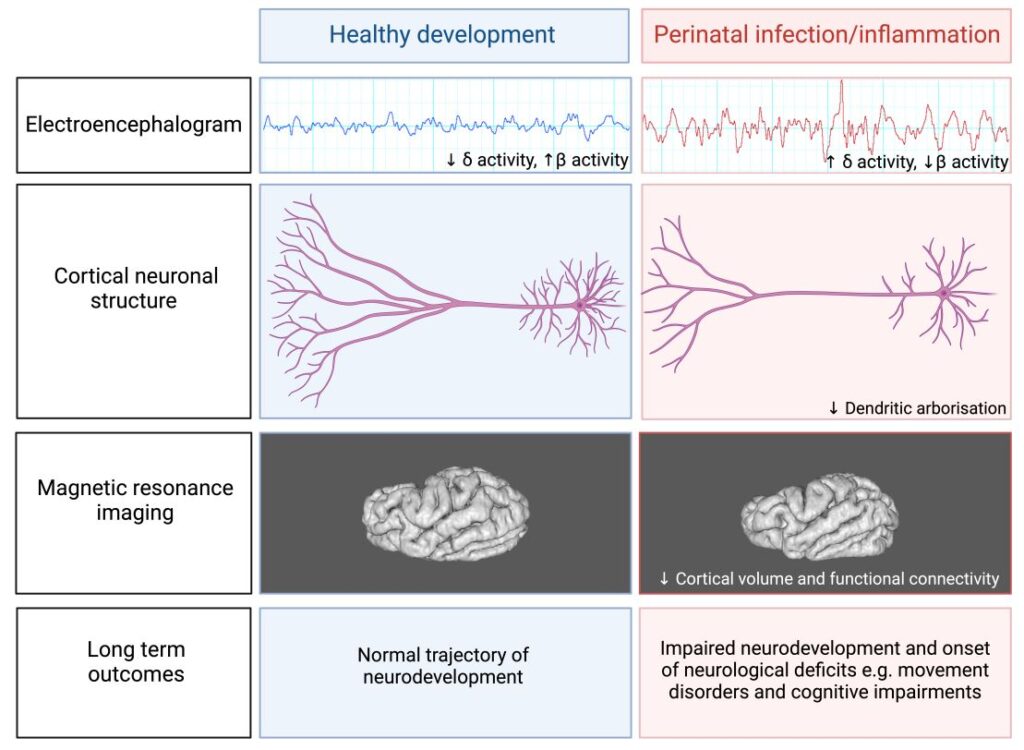
Collaborators | Department of Obstetrics and Gynaecology, Monash University. Department of Physiology, University of Auckland, New Zealand. Monash Newborn, Monash Children’s Hospital.
Journal | Neural Regeneration Research
Title | What is the pathophysiology of inflammation-induced cortical injury in the perinatal brain?
View publication | https://journals.lww.com/nrronline/abstract/9900/what_is_the_pathophysiology_of.693.aspx
In this article
About Hudson Institute
Hudson Institute’ s research programs deliver in three areas of medical need – inflammation, cancer, women’s and newborn health. More
Hudson News
Get the inside view on discoveries and patient stories
“Thank you Hudson Institute researchers. Your work brings such hope to all women with ovarian cancer knowing that potentially women in the future won't have to go through what we have!”

